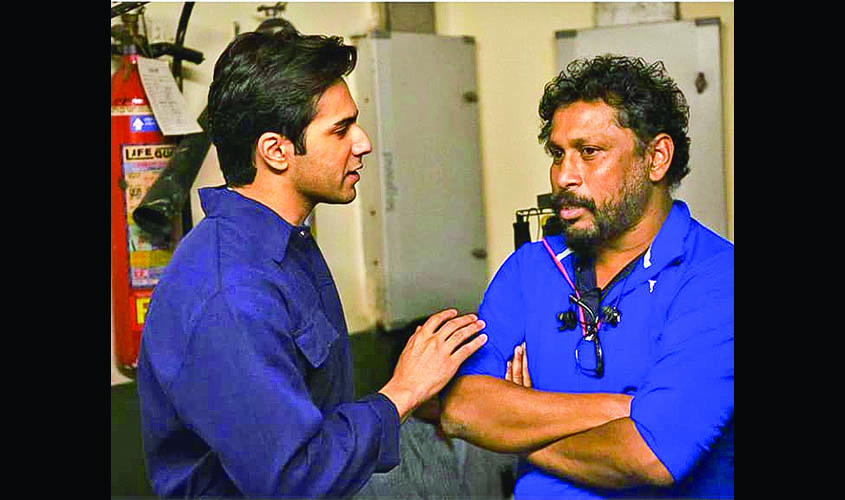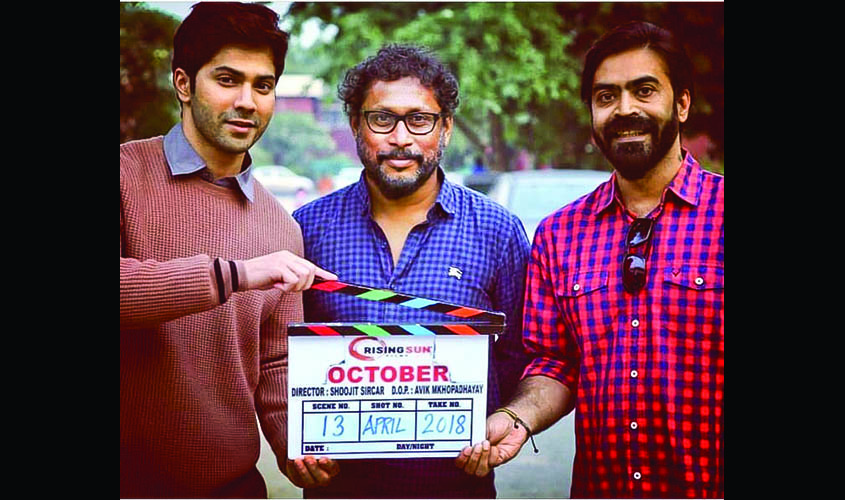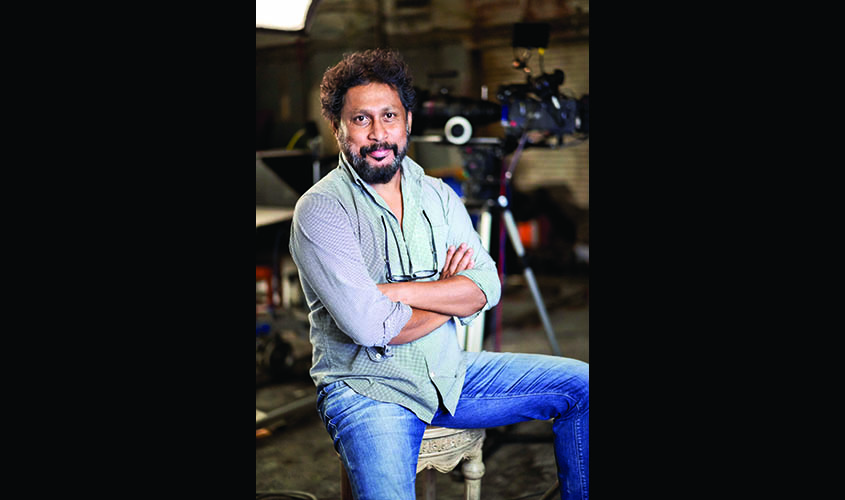Filmmakers in India generally have to choose between artistic integrity and commercial success. But Shoojit Sircar, with films like Piku, Vicky Donor and October on his résumé, has performed well on both fronts, garnering critical acclaim while keeping the producers happy. He speaks to Bhumika Popli about his idea of cinema, his recent films, and his obsession with Satyajit Ray.
Q. One of your favourite filmmakers, Satyajit Ray once said that our country’s rich literary heritage provided fertile
A. I keep looking for novels and stories and other forms of literature that are available, but I have not yet made a film from those. It is not that I am averse to making such films. There is a good amount of literature available in our country. We have grown up reading those books in schools and colleges; we are inspired and motivated by them. And I know I would love to make a film from those one day.
Q. Ray was also regarded as an auteur, someone who exercised complete control over his films. Are such figures still around in Indian cinema, or is it that contemporary filmmakers are lax about creative control?
A. No, I think complete control over films is still there. Because for everything, finally, it is the director’s call.But yes, sometimes, that changes. For example, I am not a writer, I am not a music director, but I collaborate with writers and music directors for my films. So it is more a collaborative art. And still, you need a vision behind the film, and the director provides this vision. Also, control is there. If there was no control, it would not have been possible for me to make a film like October. I would not have made the film the way I did, without making any compromises and without thinking about consumerism. I would have done it the conventional way: with a lot of music and drama and this and that. I am happy that I am able to make films on my own terms.

Q. You never make typical Bollywood films but at the same time, your films are not generically “art house”. You have your own special style of filmmaking. How did you develop this approach?
A. Cinema is cinema. It is storytelling. Simple. You are engaging the audience. Now, how does one make an art house or a commercial? I don’t think I am the right person to define that. I tell the story the way I feel it. You can call it whatever genre you like. You can call it arthouse, you can call it Shoojit Sircar-house film, Shoojit Sircar-genre film… When it comes to films, it all depends on the director’s integrity and how he or she can engage the audience with their work. It is a kind of mathematics and science: how to play with the audience’s mind. It is like chess. A live game of chess.
Q. What are the key questions you ask yourself before starting out on a project?
A. The most important and key questions I always ask myself are: Why am I here? Why I am making this film? What’s the need of making this film? Because these questions, if you keep on asking yourself, can answer all your queries. If we keep questioning ourselves constantly, we find that all answers are there in front of us.

Q. You didn’t go to any film school. So how did you learn the craft?
A. I learned the craft on the job, I taught myself. By watching a lot of films, reading a lot of books. The Bible of my film education, so to speak, has definitely been American cinema, and most importantly, Satyajit Ray’s films. I tell everybody to watch Ray. I don’t know for how long I have been watching Ray. It is like everyday. I eat, sleep and watch Ray. So, that’s how I learned. And apart from that, I assisted Pradeep Sarkar on ad films and Siddharth Basu on TV serials. I did a lot of production work and a lot of documentaries as well.
Q. How do you begin on a film? What’s your starting point?
A. It begins with a small idea. And then you start working on the script and discuss the idea with the writer. I normally collaborate with writers. They are my heroes and the backbone of a film. With them I discuss, and then they start writing. During the discussion we figure out whether or not an idea could be translated into a two-hour narrative. There may be great ideas coming in but would they translate into a two-hour-long engaging film? This is what comes out of our discussions.

Q. Today, the monopoly of the big screen on cinema has been broken. Films can now be watched on mobile devices and on video-streaming applications. Do you think this change is affecting the filmmaking process in any way?
A. The digital medium has become quite elaborate. We have good home theatre systems now, every house has a high-resolution TV set. So I think the cinema experience is slowly getting transferred to every individual’s home. You would want them to go to a theatre and watch a film on the big screen, but I think people can have similar experiences at home. But in terms of the technique and technology, the craft of filmmaking remains the same.

Q. Did you face any setbacks or failures when you started out as a filmmaker? If yes, what did you learn from those?
A. Oh, lots of failures. My first film didn’t work. The second film didn’t release. The first two films didn’t get their due, so that was a crippling failure. But you become stronger by failures. You notice the world, you learn how to survive in this world—by not selling yourself. Those are the struggles you go through. And the struggle is not to sell yourself. That’s why I produce my own films. Me, and my friend Ronnie Lahiri is there, so he produces all my films. We are good old friends and he agrees with a lot of ideas I work on. He trusts me and that makes me feel comfortable. And that means I don’t have to compromise anymore.

Q. Can a badly-written film be directed well?
A. Never. A good script can be done a great deal of good by a director, or a great deal of harm as well. But a bad script cannot lead to anything of value.
Q. Have you ever felt at the end of a shoot that the finished product turned out to be different from the kind of film you’d imagined it to be?
A. When you try to do the first cut of the film, you find that it is huge and long. You are completely surprised by it, and often say to yourself, “What is this?” Then you sit down at the editing table. I love editing. I sit down at the editing table and I create stories. Editing is one department which I enjoy the most. I enjoy writing and I enjoy editing. I hate shooting, but I love the writing and editing parts the most.

Q. The messages on your social media account are often motivational, showcasing the basic, simple aspects of life. Would you say that very similar ideas translate into your work as well?
A. Yes, I thrive on simplicity. I work with those people who are simple and like-minded, and with whom I can relate with. Those who value small things, who respect others, who have ethics. These things are very important to me. And my messages reflect the kind of person I am.

